Welcome to Advice in The Stacks, a bookish advice column from me, Traci Thomas, the host and creator of The Stacks podcast. My show is all about books and the people who read them, with new episodes out every Wednesday on your favorite podcast platform. Due to the nature of the show I am constantly asked for advice on all things books, so I’m making it formal and bringing my advice to all of you with my monthly column here at SheReads.com.
If you have questions about anything book related, CLICK HERE and submit your question, and then come back the last Thursday of the month to see my advice.
How do you prep for writing book reviews? Do you take notes while reading? Write down important quotes? Do you write them right after finishing or do you marinate for a while?
A few things to know about my review writing process. First, when I started The Stacks’ Instagram page (before the show ever launched an episode) I committed to writing a review for every book I finished. I wanted to hold myself accountable to not just writing about the books I loved, but offering critiques of things that didn’t work for me as well. I wanted the people who were taking the time to read my often-fumbling ramblings to get to know my reading tastes through the ways I responded to all the different types of books I read. I think as a reader of reviews, it is important to know the context in which a reviewer writes—what genres they swoon for and what types of books can never get a rave.
Now to your actual questions, how do I prepare for and approach my reviews? First, I try my hardest to keep them brief. I am not an NYT book reviewer (though I would be more than happy to be one, hit me up Times’ team). I don’t have anything to prove. I’m just sharing my thoughts on a book. If I am reading the book for The Stacks podcast (an interview, a book club, or book tour type event) I will take notes as I read. Most of these notes are about questions that come up for me, what I want to ask the author about, etc. Otherwise I consider myself “reading for pleasure.” No homework, please. I am also not a quote person, so I rarely, if ever, write down quotes. The truth is I don’t even have a journal where I keep track of my book thoughts. I take all my work-related notes in the notes app on my iphone.
After I finish the book I immediately go into my goodreads account and write down brief and skeletal thoughts. Usually what worked and what didn’t, as well as anything that really stood out for me and the way the book made me feel. After that, when I feel ready (sometimes that’s the next day, sometimes that’s a month later) I will write out my thoughts (still on my phone) for a #thestacksreview on The Stacks’ Instagram page. In these I try to make sure to include what I liked and didn’t like. This is not a comprehensive recap of the book; I figure folks can google if they want all the details, plus I hate spoilers. My reviews are really just my thoughts on maybe one or two components of the book that really stood out to me.
I try to never spend too much time on my reviews, mostly because I don’t like writing (hahaha says the person with a monthly column) and again, I’m not writing this for the New York Times. It just isn’t that serious.
So if you’re an online book reviewer, or trying to be better about sharing your reviews with the world here is my advice: find a format that works for you. Share what you think is important and relevant to your audience. Don’t stress yourself out. Have fun. And lastly, remember, the longer you take in writing your reviews, the less time you have for reading books.
Hi Traci! Love the show. Can you please recommend some books for a book club? A book that is intriguing to a wide variety of people or really sparks a good conversation (either because it is loved or hated).
Yes! I love thinking about book club picks—though if you know me you know I’ve only ever been in two book clubs in my entire life. The first was back in 2009, with my friend Sam. It was just the two of us. We only read books we wanted to read, mostly cult- and mass murder-related, and we’d meet in different midtown Manhattan Chipotles to discuss. Neither of us even really liked Chipotle, but the unlimited fountain Diet Coke situation and protection from the elements was a perk of a official meeting place. The second book club? The Stacks Book Club. That’s right, the book club for the podcast I created and host, which started back in 2018. So while I love to think about book club picks, please know I am the least experienced in real life book clubber to ever book club.
Quick disclaimer, I am not going to recommend any previous book club picks from The Stacks Book Club, however you can find our full list of previous book club picks here. Each of these picks comes with a sixty-minute discussion with myself and a guest on the podcast, and you can enjoy that alone or better yet, tell your whole book club to listen, too! (In case you’re wondering a few of my standouts from the podcast’s book club are Home Fire, Beloved, Breathe, and Passing).
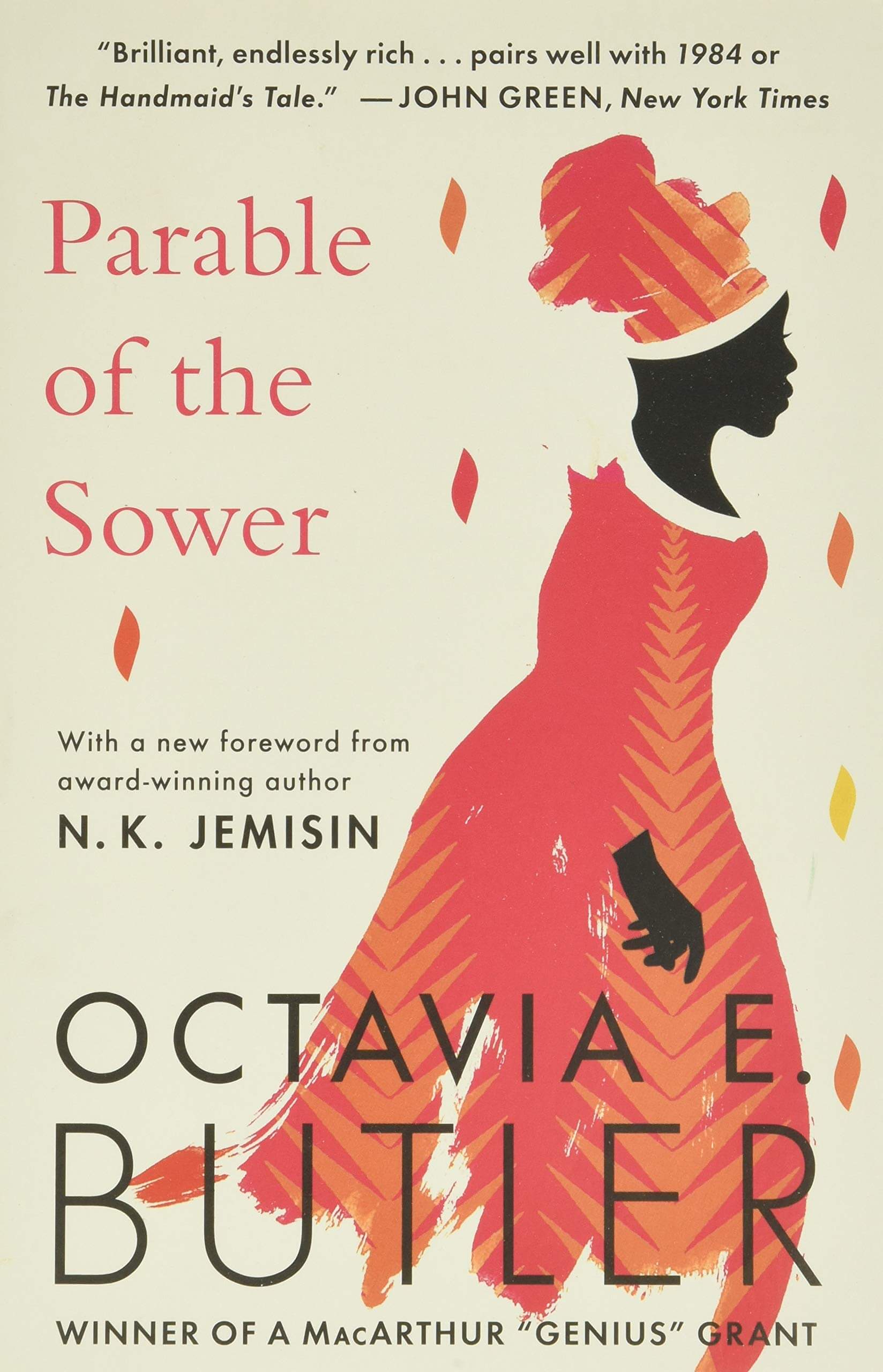
Parable of the Sower by Octavia E. Butler
This book is perfect for a book club. The book was written in 1993 and is speculative fiction (don’t let the genre scare you) about the future of the United States, specifically California, that contains violence, drug addiction, climate change, corruption in politics, and on and on. Butler was ahead of her time. The wildest part is, that “future” in Parable of the Sower is the year 2024. So, not too future at all. The novel is going to bring up so much to talk about. There are discussions of gender, capitalism, religion, family, obligation, violence and so much more. If I’m being honest, you could use this book to talk about just about anything you and your book club wanted.
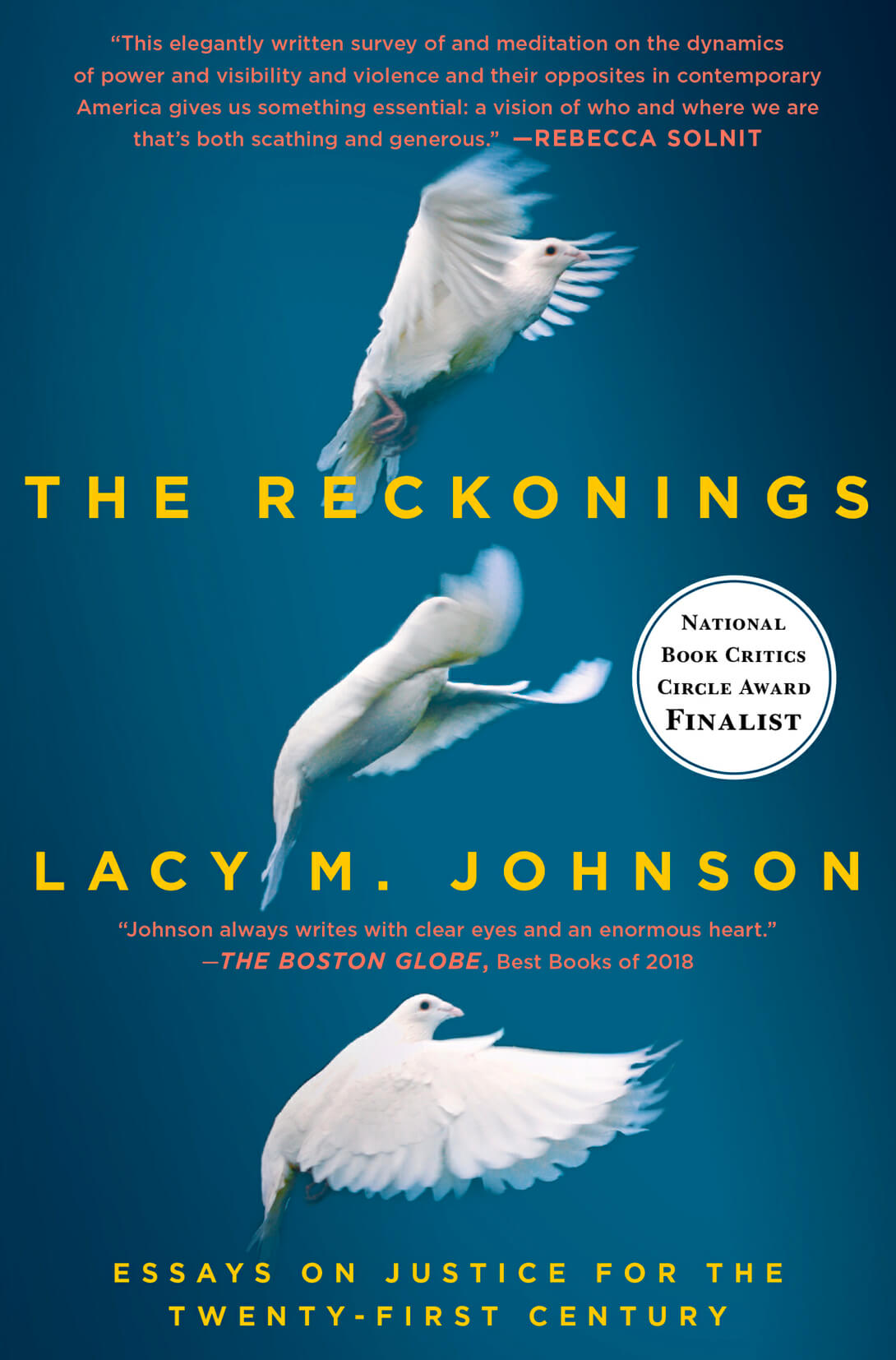
The Reckonings: Essays on Justice for the Twenty-First Century by Lacy M. Johnson
This is one of my favorite books of the last five years. I have been dreaming of doing this book as part of The Stacks Book Club, but feel like I need just the perfect guest, so I’ll keep waiting. The book was conceived during the book tour for Johnson’s first book The Other Side. Audience members kept asking Johnson what she imagined justice would look like for the man who kidnapped and raped her. The book starts from there but moves quickly from Johnson’s own violent attack to other ways justice can and should manifest in our world. She writes essays that range from death row inmates to the events of Hurricane Harvey, from the BP oil spill to gender norms. It’s a book that asks questions about what justice in its many manifestations could and should look like, and to me, that is a fantastic topic to interrogate over and over. If you’re interested in hearing more from Johnson and her process in crafting this collection, she was a guest on The Stacks in 2019.
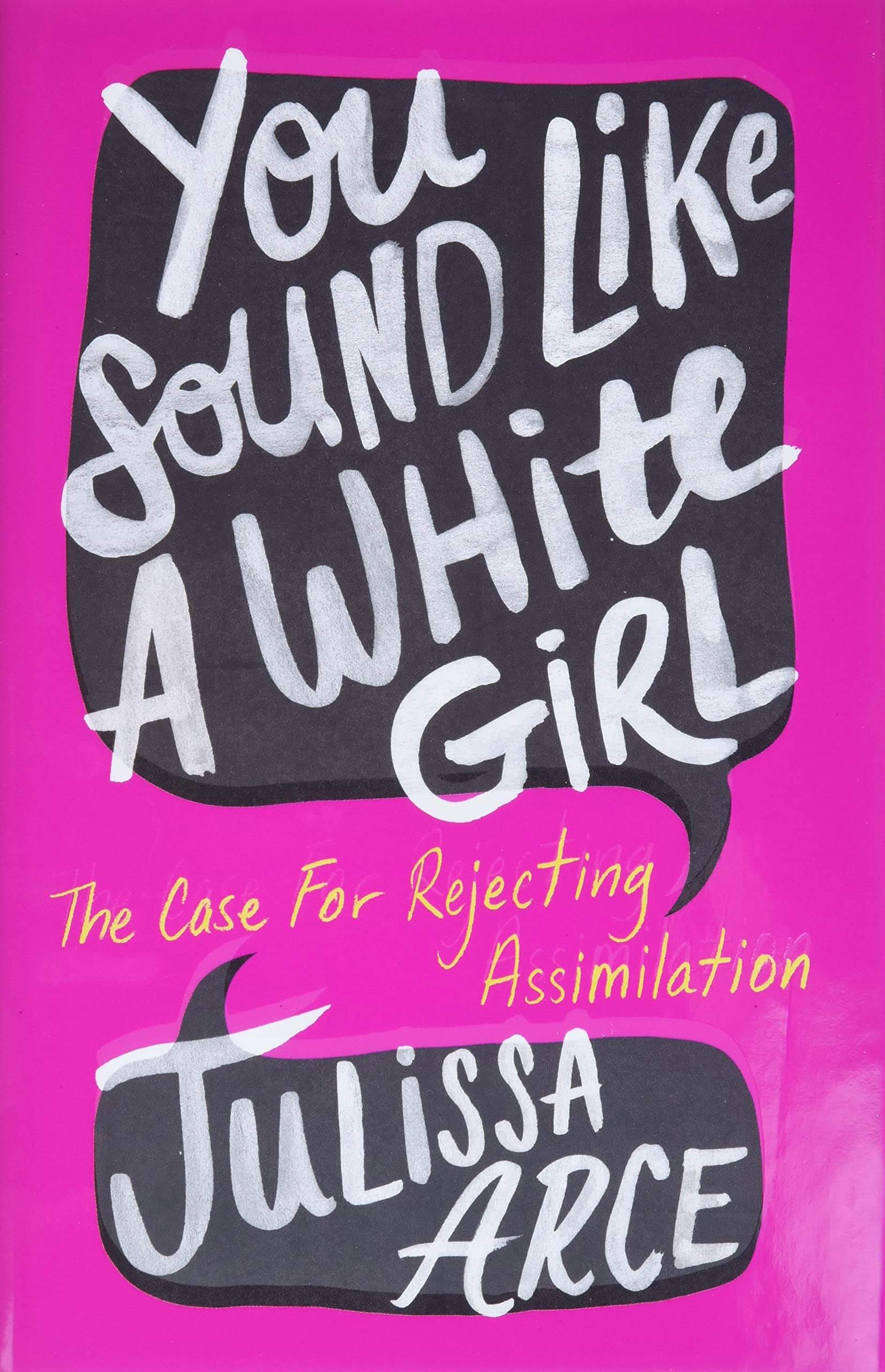
You Sound Like a White Girl: The Case for Rejecting Assimilation by Julissa Arce
I’m picking this book for two reasons: The first is that this book is thinking about and talking about racism and white supremacy through a Mexican and Latina lens. So often the conversation about race in America is centered on Blackness and whiteness, and for good reasons. However that lens is not the only way we should think about race in America. Arce does not fit into that rigid binary, and in fact she grapples with this through the book. The second reason is, this book will challenge much of what Americans know about Mexican and Latine history. It will also challenge many of the often-repeated talking points and ignorance around immigration in America. None of this is new, and Arce makes sure to drive that point home in You Sound Like a White Girl. You can also hear Arce on The Stacks from a few weeks ago.
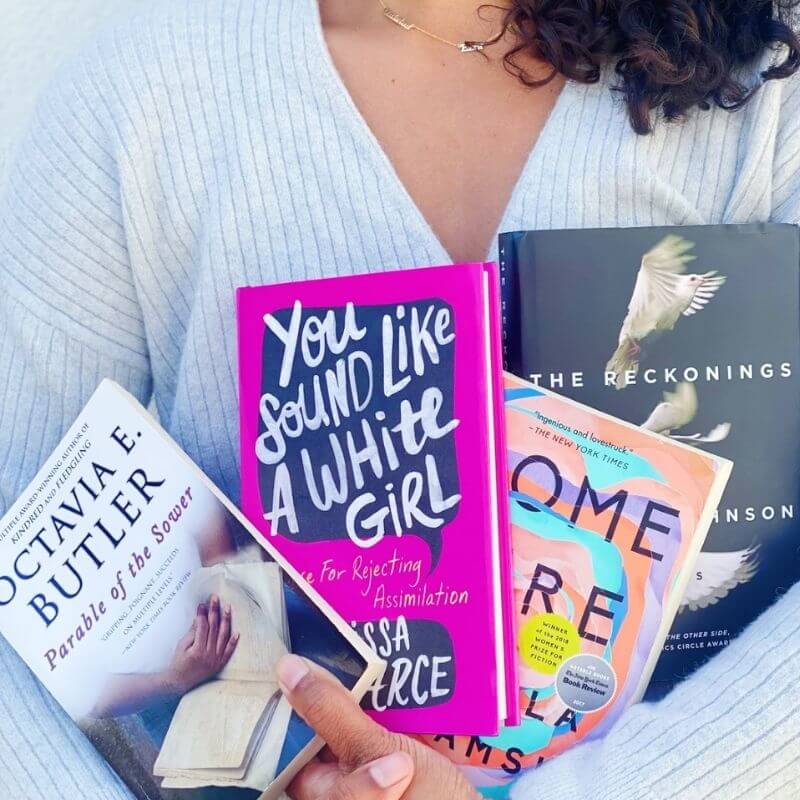

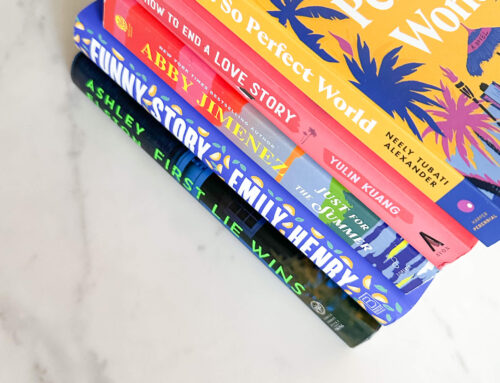
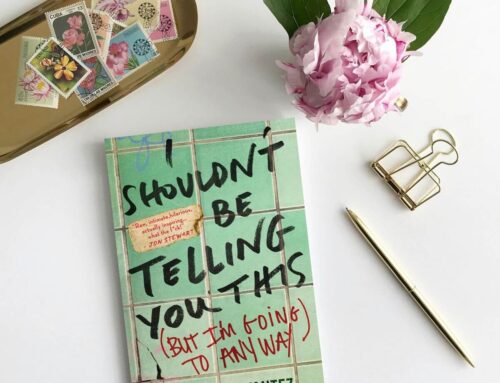
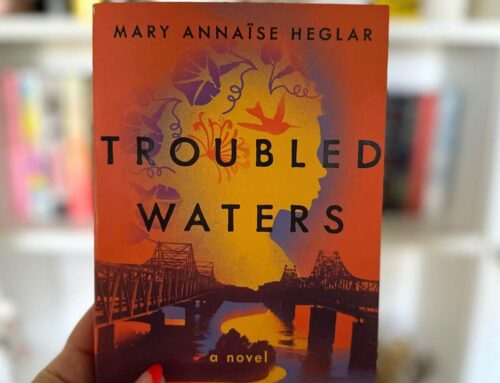

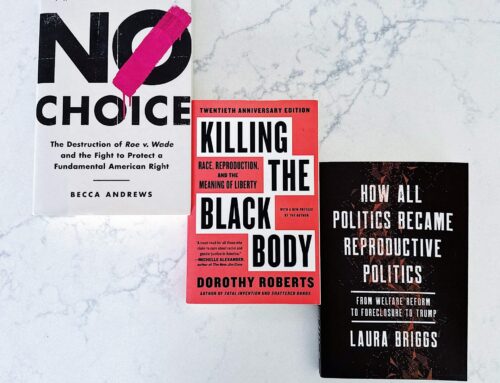
Leave A Comment